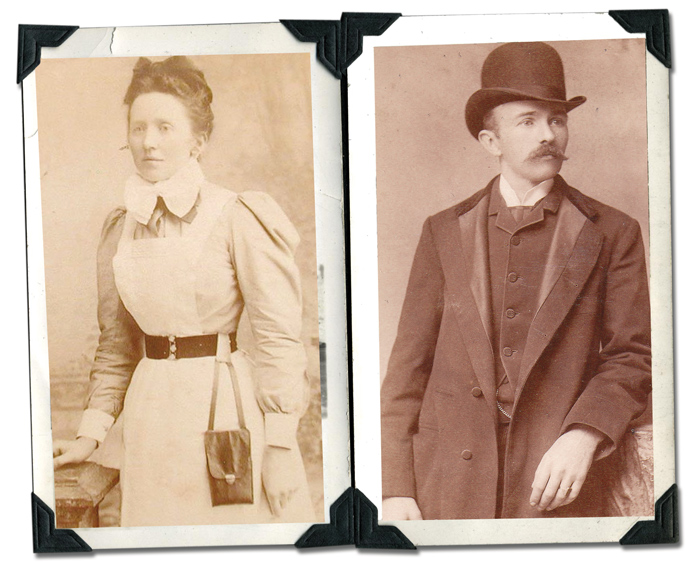 Lest we take for granted the general peace and safety that residents of Rye enjoy today, it is useful to look back a hundred years or more to the conditions that existed before Rye was incorporated as a self-governing village with its own ordinances and police force.
Lest we take for granted the general peace and safety that residents of Rye enjoy today, it is useful to look back a hundred years or more to the conditions that existed before Rye was incorporated as a self-governing village with its own ordinances and police force.
By Paul Hicks
 Lest we take for granted the general peace and safety that residents of Rye enjoy today, it is useful to look back a hundred years or more to the conditions that existed before Rye was incorporated as a self-governing village with its own ordinances and police force.
Lest we take for granted the general peace and safety that residents of Rye enjoy today, it is useful to look back a hundred years or more to the conditions that existed before Rye was incorporated as a self-governing village with its own ordinances and police force.
Thanks to digitized copies of the Port Chester Journal, we can “return now to those thrilling days of yesteryear,” (as they used to say on “The Lone Ranger” broadcasts).
June 20, 1889:
“This week, Constable Samuel H. Graham had three drunks up before Justice Downing, who fined them $5 a piece and discharged them.”
October 30, 1890:
“The good people of Rye are annoyed beyond the limit of patience by the gang of boys or men who roam about at night, making themselves obnoxious by their noise and unlawful acts. The property of citizens is destroyed, and even church properties are not exempt from desecration. Why do not citizens organize a vigilance committee and punish these scamps. One dose of switching will cure these lawless characters.”
December 11, 1890:
“It seems that the night burglar who broke the show windows of the Van Scoy store and Epstein jewelry store in Rye, is at last in the unmerciful hands of the New York police, with fair prospect of doing service to the State.”
January 8, 1891:
“About three o’clock on Monday, a telephone message was received at the police station from Mrs. N. H. Paddock that a man had entered her home and stolen her chatelaine bag containing her pocketbook with about $2 in change…she then described the man as middle-aged, short, with a heavy mustache, wearing a derby hat and carrying a valise…Sergeant Pflug recalled seeing a man tallying with that description going down Purchase Street a short time before. The police, therefore, got busy, and Officer Tracey started toward Harrison on a bicycle, while Sergeant Pflug boarded a westbound trolley. When our sergeant spied the man walking along the railroad tracks, he dropped off the trolley, covered him with his revolver and brought him back to the police station.”
May 19, 1892:
Parties who have been exploding dynamite cartridges in the creeks of Rye, for the purpose of killing carp and other fish, had better take warning. There are severe penalties for this pastime. Carp weighing ten or twelve pounds should be caught in a more legitimate way.”
November 28, 1895:
“On Saturday, four young ladies, who were out driving in a hired wagon, were upset on Purdy Avenue by the horse running away. The horse ran about a half mile before the ladies were thrown out. The wagon was afterwards demolished by the infuriated animal. One of the young ladies had her face badly cut, but the others escaped uninjured.”
May 21, 1896:
“On Thursday evening, thieves entered the residence of Mr. John Hammett in Rye Park and stole nearly all the silver ware in the house…This is the third robbery inside of a week. The rectory of the Episcopal Church and the parsonage of the Methodist Church were entered on the Friday preceding.”
November 4, 1897:
“The election was one of the most orderly and quiet held in Rye in many years. There was not even one drunken man noticed about the two Rye polls on that day.”
“A well-known lady of this village would like to know why bicyclists are permitted to ride on the sidewalk…She recalls an accident whereby a poor woman has been confined to her bed for three weeks, and her own narrow escape, as reasons why this abuse should be stopped…Rye Village being unincorporated, we do not believe that any ordinance can be passed prohibiting riding on sidewalks.”
March 3, 1898:
“A number of youths of the gilded age went over to White Plains on Saturday night to have a cock fight. They went in a carryall and took their birds with them. They were quite discomfited, however, when Sheriff Molloy, who had got wind of the plan, swooped down on the carryall and began to search it. One of the boys in the trap denied the right of anyone to search it. ‘I am Sheriff Molloy,’ was the reply. ‘Hello, is that you Billy,’ he asked the Rye man, who ceased to be so aggressive when he realized he was dealing with the Sheriff.”
At the turn of the last century, residents of the hamlet of Rye were concerned not just about criminals, drunks, and hooligans, but also about unsanitary sewers, poorly maintained roads, and a lack of representation in the Town of Rye government. Pressure was mounting for incorporating the Village of Rye as a separate municipality, which will be the subject of another article.















